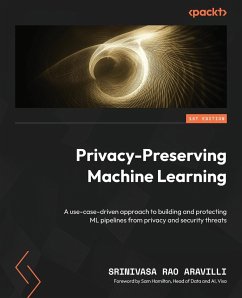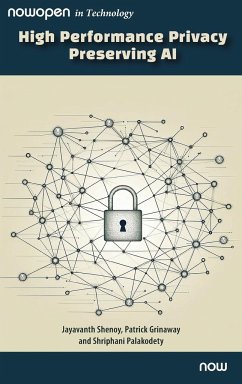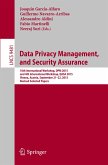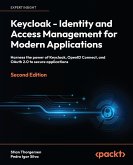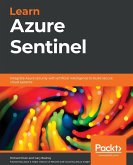Gain hands-on experience in data privacy and privacy-preserving machine learning with open-source ML frameworks, while exploring techniques and algorithms to protect sensitive data from privacy breaches Key Features: - Understand machine learning privacy risks and employ machine learning algorithms to safeguard data against breaches - Develop and deploy privacy-preserving ML pipelines using open-source frameworks - Gain insights into confidential computing and its role in countering memory-based data attacks - Purchase of the print or Kindle book includes a free PDF eBook Book Description: - In an era of evolving privacy regulations, compliance is mandatory for every enterprise - Machine learning engineers face the dual challenge of analyzing vast amounts of data for insights while protecting sensitive information - This book addresses the complexities arising from large data volumes and the scarcity of in-depth privacy-preserving machine learning expertise, and covers a comprehensive range of topics from data privacy and machine learning privacy threats to real-world privacy-preserving cases - As you progress, you'll be guided through developing anti-money laundering solutions using federated learning and differential privacy - Dedicated sections will explore data in-memory attacks and strategies for safeguarding data and ML models - You'll also explore the imperative nature of confidential computation and privacy-preserving machine learning benchmarks, as well as frontier research in the field - Upon completion, you'll possess a thorough understanding of privacy-preserving machine learning, equipping them to effectively shield data from real-world threats and attacks What You Will Learn: - Study data privacy, threats, and attacks across different machine learning phases - Explore Uber and Apple cases for applying differential privacy and enhancing data security - Discover IID and non-IID data sets as well as data categories - Use open-source tools for federated learning (FL) and explore FL algorithms and benchmarks - Understand secure multiparty computation with PSI for large data - Get up to speed with confidential computation and find out how it helps data in memory attacks Who this book is for: - This comprehensive guide is for data scientists, machine learning engineers, and privacy engineers - Prerequisites include a working knowledge of mathematics and basic familiarity with at least one ML framework (TensorFlow, PyTorch, or scikit-learn) - Practical examples will help you elevate your expertise in privacy-preserving machine learning techniques Table of Contents - Introduction to Data Privacy, Privacy threats and breaches - Machine Learning Phases and privacy threats/attacks in each phase - Overview of Privacy Preserving Data Analysis and Introduction to Differential Privacy - Differential Privacy Algorithms, Pros and Cons - Developing Applications with Different Privacy using open source frameworks - Need for Federated Learning and implementing Federated Learning using open source frameworks - Federated Learning benchmarks, startups and next opportunity - Homomorphic Encryption and Secure Multiparty Computation - Confidential computing - what, why and current state - Privacy Preserving in Large Language Models
Hinweis: Dieser Artikel kann nur an eine deutsche Lieferadresse ausgeliefert werden.
Hinweis: Dieser Artikel kann nur an eine deutsche Lieferadresse ausgeliefert werden.

